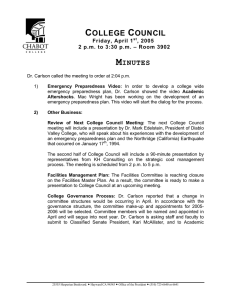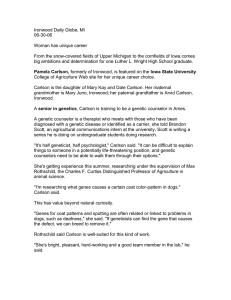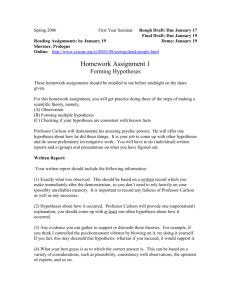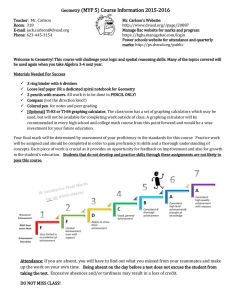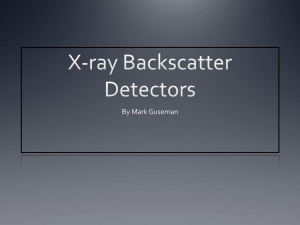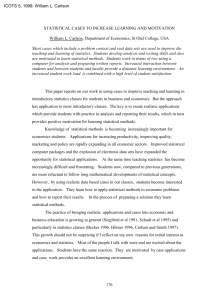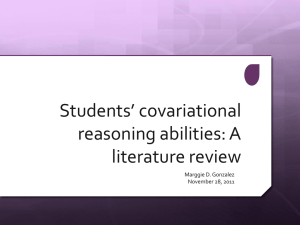Syllabus date: February 8, 2016 COURSE TITLE: Comparative
advertisement
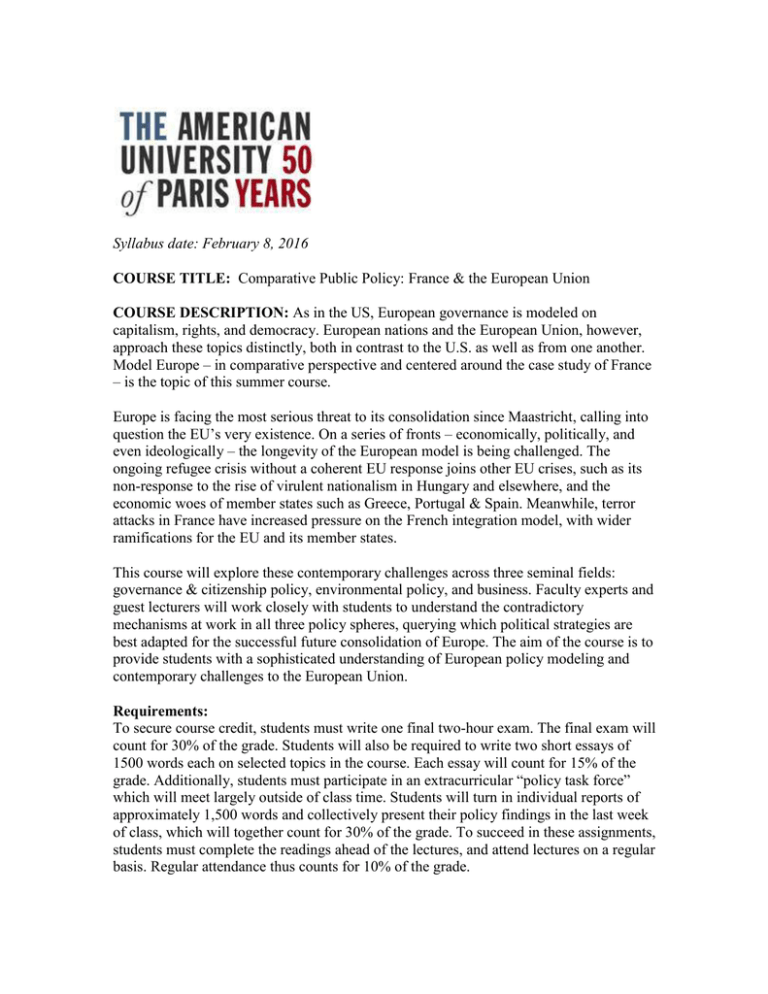
Syllabus date: February 8, 2016 COURSE TITLE: Comparative Public Policy: France & the European Union COURSE DESCRIPTION: As in the US, European governance is modeled on capitalism, rights, and democracy. European nations and the European Union, however, approach these topics distinctly, both in contrast to the U.S. as well as from one another. Model Europe – in comparative perspective and centered around the case study of France – is the topic of this summer course. Europe is facing the most serious threat to its consolidation since Maastricht, calling into question the EU’s very existence. On a series of fronts – economically, politically, and even ideologically – the longevity of the European model is being challenged. The ongoing refugee crisis without a coherent EU response joins other EU crises, such as its non-response to the rise of virulent nationalism in Hungary and elsewhere, and the economic woes of member states such as Greece, Portugal & Spain. Meanwhile, terror attacks in France have increased pressure on the French integration model, with wider ramifications for the EU and its member states. This course will explore these contemporary challenges across three seminal fields: governance & citizenship policy, environmental policy, and business. Faculty experts and guest lecturers will work closely with students to understand the contradictory mechanisms at work in all three policy spheres, querying which political strategies are best adapted for the successful future consolidation of Europe. The aim of the course is to provide students with a sophisticated understanding of European policy modeling and contemporary challenges to the European Union. Requirements: To secure course credit, students must write one final two-hour exam. The final exam will count for 30% of the grade. Students will also be required to write two short essays of 1500 words each on selected topics in the course. Each essay will count for 15% of the grade. Additionally, students must participate in an extracurricular “policy task force” which will meet largely outside of class time. Students will turn in individual reports of approximately 1,500 words and collectively present their policy findings in the last week of class, which will together count for 30% of the grade. To succeed in these assignments, students must complete the readings ahead of the lectures, and attend lectures on a regular basis. Regular attendance thus counts for 10% of the grade. Statement for Students with Disabilities: Any student requesting academic accommodations based on a disability is required to register with AUP's Student Affairs office at the beginning of the course. The office is located on rue Colonel Combes and is open Monday – Friday 9 am to 5 pm. Statement on Academic Integrity: General principles of academic honesty include the concept of respect for the intellectual property of others, the expectation that individual work will be submitted unless otherwise allowed by an instructor, and the obligations both to protect one’s own academic work from misuse by others as well as to avoid using another’s work as one’s own. All students are expected to understand and abide by these principles. SCampus, the Student Guidebook, (www.usc.edu/scampus or http://scampus.usc.edu) contains the University Student Conduct Code (see University Governance, Section 11.00), while the recommended sanctions are located in Appendix A. BOOKS (for student purchase): Michael Chabon, The Yiddish Policeman’s Union Dave Eggers, What is the What? Articles & Chapters (materials to be provided by instructor): J. H. H. Weiler, The Constitution of Europe: 'Do the New Clothes Have an Emperor?' and Other Essays on European Integration (Cambridge University Press 1999) Christian Joppke, Veil: Mirror of Identity (Polity Press 2009) Erik Bleich, Chapter 4: France, in Case Studies in Comparative Politics (Peachpitt Press 2012) Anne Orford, “Europe Reconstructed” 75 Modern Law Review 275-286 (2012) Martin Chick, Electricity and Energy Policy in Britain, France and the United States since 1945 Chapters 3 & 5 (Edward Elgar Publishing Ltd 2009) Martin Marcussen and Jarle Trondal, “The OECD civil servant: Caught between Scylla and Charybdis” Review of International Political Economy Vol. 18, No. 5 http://www.economist.com/news/leaders/21601512-thomas-pikettys-blockbuster-bookgreat-piece-scholarship-poor-guide-policy?fsrc=explainsdig (December 2011) http://www.dailykos.com/story/2016/1/12/1388043/-No-Charlie-Hebdo-is-not-racistHere-s-why Film: La Journée de la Jupe; It’s Hard Being Loved by Jerks; Gasland; Week 1: The Confederalization of Europe: governance through law, politics, & economics 6 June Introduction to European federalism Lecture: Dr. Carlson Reading: Weiler (1999) Chapter 2 (pp 10 – 100) 7 June 8 June 9 June Week 2: 13 June Afternoon: First task force meetings; following meetings TBA Introduction to European federalism continued Lecture: Dr. Carlson Reading: Weiler (1999) Chapter 2 (pp 10 – 100) Challenges to “Model Europe” in France Lecture: Dr. Carlson Reading: Bleich (2012) Chapter 4; The Economist on Thomas Pinketty Cite Visit: Jean Monnet house Comparative models of liberalism: human rights & governance Lecture: Dr. Carlson Reading: Joppke (2009) Chapters 1, 2 & 5 (pp 1-52; 107 -126) 14 June Questioning the role of the state (comparative models of law and governance) Lecture: Dr. Carlson Reading: Orford (2012) 15 June France & The Veil Guest Lecture: Dr. Susan Perry Reading: “Against Nature” New Yorker 2011 16 June Film: It’s Hard Being Loved by Jerks Week 3: EU Citizenship: Refugees, Migrants, & Belonging 20 June The Crisis of Charlie Hebdo Lecture: Dr. Carlson Reading: 3 2015 New York Review of Books articles on France by Mark Lilla First essay due 21 June EU law of citizenship & the Refugee Crisis Lecture: Dr. Carlson Reading: What is the What by Dave Eggers 22 June Cite visit : Immigration & diversity in France: the case of Roma? Lecture: Manon Fillonneau, RomEurope 23 June Cite visit : Ni Putes Ni Soumises Week 4: Going Green European Style 27 June: Energy as policy Lecture: Dr. Carlson Reading: Chick (2009) Chapters 3 & 5 (pp 34-56; 84-109) 28 June French case: staying nuclear in France Guest lecture: Michel Debes, EDF & Areva 29 June Why fracking isn’t on the European agenda Climate change & legislative responses Preparation: Gasland (2010); An Inconvenient Truth Film: Gasland II (2010) 30 June Cite visit: Dual Sun Week 5: Doing business in Europe 4 July The European business model: legal & social models Lecture: Dr. Carlson Reading: Weiler (1999) Chapter 9 (pp 286 -323) Second essay due 5 July Cite visit: OECD Reading: Marcussen & Trondal (2011) 6 July Comparative corporate structures Lecture: Professor Gail Hamilton, 7 July Money matters: European Central Bank & Exit from the EU Lecture: Dr. Carlson Reading: TBA Week 6: Wrapping up 13 July Policy-making exercise: a common energy policy in the EU? Lecture: Dr. Carlson Reading: The Yiddish Policemen’s Union 14 July Policy Task Force Presentations 15 July Final Exam
